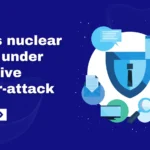5,000 Cyber Commandos in 5 Years
In an era where cyber threats are becoming increasingly sophisticated, the Indian government is taking significant strides to bolster its cybersecurity framework. Recently, Union Home Minister Amit Shah announced an ambitious plan to train and deploy 5,000 cyber commandos over the next five years. This initiative, unveiled during the first foundation day of the Indian Cyber Crime Coordination Centre (I4C), aims to create a formidable force capable of swiftly addressing cyberattacks and ensuring the safety of India’s digital landscape.
| Section | Details |
|---|
| Introduction | Announcement of training and deploying 5,000 cyber commandos over five years to enhance India’s cybersecurity efforts. |
| The Need for Cyber Commandos | Emphasis on cybersecurity as a critical component of national security and economic growth. |
| What Are Cyber Commandos? | Definition of cyber commandos as specially trained police officers responsible for rapid response to cyberattacks. |
| Key Initiatives Launched | Overview of major initiatives, including the Suspect Registry and Cyber Fraud Mitigation Centre (CFMC), aimed at combating cybercrime more effectively. |
| Breaking Down Data Silos | Discussion on the need for unified efforts among various stakeholders to combat the borderless nature of cybercrime. |
| Holistic Approach to Cybersecurity | Description of a comprehensive strategy integrating various efforts to enhance the nation’s cybersecurity framework. |
| The Road Ahead | Future plans for training and community involvement in cybersecurity awareness to prepare for emerging cyber threats. |
The Need for Cyber Commandos
Cybersecurity is no longer just a technical issue; it’s a vital part of national security. With the world becoming more digital, the risks associated with cyber threats have escalated. Amit Shah emphasized that India’s growth is inextricably linked to its ability to secure its cyberspace. He stated, “The growth of the country is not possible without ensuring cybersecurity,” highlighting the urgency of the matter.
What Are Cyber Commandos?
So, who exactly are these cyber commandos? They will be specially trained police officers who will form a quick response team to tackle cybercrime across the nation. Their role will be crucial in minimizing damage and preventing disruptions to critical digital infrastructure, which is essential for the country’s functioning.
Key Initiatives Launched
During the I4C foundation day event, several initiatives were announced that will complement the deployment of the cyber commandos:
1. Suspect Registry
One of the standout initiatives is the Suspect Registry, a nationwide database designed to track individuals involved in cyber and financial crimes. This registry aims to centralize information, making it easier for law enforcement agencies across states and union territories to access and monitor suspects. By collaborating with banks and financial intermediaries, the Suspect Registry is expected to enhance fraud risk management significantly.
2. Cyber Fraud Mitigation Centre (CFMC)
Shah also inaugurated the Cyber Fraud Mitigation Centre (CFMC), which will act as a collaborative hub for various stakeholders, including banks, IT intermediaries, telecom providers, and law enforcement agencies. The goal is to tackle online financial crimes more effectively through joint efforts, enhancing the country’s defenses against cyber fraud.
3. Breaking Down Data Silos
One of the challenges in combating cybercrime is the existence of data silos, which often hinder coordinated responses. Shah emphasized the need for a more unified approach among states and agencies to combat the borderless nature of cyber threats. This initiative will include the creation of platforms like Samanvaya, a cybercrime investigation facilitation system that will serve as a one-stop portal for data analytics, crime mapping, and collaboration among law enforcement agencies (LEAs).
4. Holistic Approach to Cybersecurity
The initiatives launched at the I4C reflect a holistic approach to cybersecurity. By integrating various efforts and breaking down barriers, the Indian government aims to build a robust framework that not only addresses current threats but also anticipates future challenges.
| Initiative | Description |
|---|---|
| Cyber Commandos | A force of 5,000 specially trained police officers to combat cybercrime swiftly. |
| Suspect Registry | A nationwide database for tracking individuals involved in cyber and financial crimes, enhancing fraud risk management. |
| Cyber Fraud Mitigation Centre | A collaborative hub for banks, IT intermediaries, telecom providers, and law enforcement agencies to tackle online financial crimes collectively. |
| Samanvaya | A cybercrime investigation facilitation system acting as a one-stop portal for data analytics, crime mapping, and collaboration among law enforcement agencies. |
The Road Ahead
With the focus on cybersecurity, the establishment of the 5,000-strong cyber commando force is a clear indication of the government’s commitment to addressing the evolving landscape of cyber threats. As India continues to advance further into the digital age, these initiatives will significantly enhance the nation’s capabilities to fight cybercrime.
Training and Deployment Timeline
The next five years will be crucial for training and deploying these cyber commandos. The government plans to equip them with the necessary skills to respond effectively to a wide range of cyber threats. This training will not only focus on technical skills but also on strategic thinking and rapid decision-making.
Community Awareness and Involvement
In addition to these initiatives, there’s a growing recognition of the importance of community involvement in cybersecurity. The government is likely to launch awareness campaigns aimed at educating citizens about online safety, helping them recognize potential threats, and reporting suspicious activities.
FAQs
The 5,000 cyber commandos are specially trained police officers tasked with combating cybercrime and responding to cyberattacks across India.
Cybersecurity is crucial for national security as it protects critical digital infrastructure and helps maintain the stability and growth of the country.
The Suspect Registry is a nationwide database designed to store and share information about individuals involved in cyber and financial crimes, aiding law enforcement in tracking suspects.
The CFMC is a collaborative hub where banks, IT intermediaries, telecom providers, and law enforcement agencies can work together to combat online financial crimes.
The cyber commandos will undergo specialized training focused on technical skills, strategic thinking, and rapid decision-making to effectively address various cyber threats.
5,000 Cyber Commandos in 5 Years: Strengthening India’s Digital Defense
In an era where cyber threats are becoming increasingly sophisticated, the Indian government is taking significant strides to bolster its cybersecurity framework. Recently, Union Home Minister Amit Shah announced an ambitious plan to train and deploy 5,000 cyber commandos over the next five years. This initiative, unveiled during the first foundation day of the Indian Cyber Crime Coordination Centre (I4C), aims to create a formidable force capable of swiftly addressing cyberattacks and ensuring the safety of India’s digital landscape.
The Need for Cyber Commandos
Cybersecurity is no longer just a technical issue; it’s a vital part of national security. With the world becoming more digital, the risks associated with cyber threats have escalated. Amit Shah emphasized that India’s growth is inextricably linked to its ability to secure its cyberspace. He stated, “The growth of the country is not possible without ensuring cybersecurity,” highlighting the urgency of the matter.
What Are Cyber Commandos?
So, who exactly are these cyber commandos? They will be specially trained police officers who will form a quick response team to tackle cybercrime across the nation. Their role will be crucial in minimizing damage and preventing disruptions to critical digital infrastructure, which is essential for the country’s functioning.
Key Initiatives Launched
During the I4C foundation day event, several initiatives were announced that will complement the deployment of the cyber commandos:
1. Suspect Registry
One of the standout initiatives is the Suspect Registry, a nationwide database designed to track individuals involved in cyber and financial crimes. This registry aims to centralize information, making it easier for law enforcement agencies across states and union territories to access and monitor suspects. By collaborating with banks and financial intermediaries, the Suspect Registry is expected to enhance fraud risk management significantly.
2. Cyber Fraud Mitigation Centre (CFMC)
Shah also inaugurated the Cyber Fraud Mitigation Centre (CFMC), which will act as a collaborative hub for various stakeholders, including banks, IT intermediaries, telecom providers, and law enforcement agencies. The goal is to tackle online financial crimes more effectively through joint efforts, enhancing the country’s defenses against cyber fraud.
3. Breaking Down Data Silos
One of the challenges in combating cybercrime is the existence of data silos, which often hinder coordinated responses. Shah emphasized the need for a more unified approach among states and agencies to combat the borderless nature of cyber threats. This initiative will include the creation of platforms like Samanvaya, a cybercrime investigation facilitation system that will serve as a one-stop portal for data analytics, crime mapping, and collaboration among law enforcement agencies (LEAs).
4. Holistic Approach to Cybersecurity
The initiatives launched at the I4C reflect a holistic approach to cybersecurity. By integrating various efforts and breaking down barriers, the Indian government aims to build a robust framework that not only addresses current threats but also anticipates future challenges.
| Initiative | Description |
|---|---|
| Cyber Commandos | A force of 5,000 specially trained police officers to combat cybercrime swiftly. |
| Suspect Registry | A nationwide database for tracking individuals involved in cyber and financial crimes, enhancing fraud risk management. |
| Cyber Fraud Mitigation Centre | A collaborative hub for banks, IT intermediaries, telecom providers, and law enforcement agencies to tackle online financial crimes collectively. |
| Samanvaya | A cybercrime investigation facilitation system acting as a one-stop portal for data analytics, crime mapping, and collaboration among law enforcement agencies. |
The Road Ahead
With the focus on cybersecurity, the establishment of the 5,000-strong cyber commando force is a clear indication of the government’s commitment to addressing the evolving landscape of cyber threats. As India continues to advance further into the digital age, these initiatives will significantly enhance the nation’s capabilities to fight cybercrime.
Training and Deployment Timeline
The next five years will be crucial for training and deploying these cyber commandos. The government plans to equip them with the necessary skills to respond effectively to a wide range of cyber threats. This training will not only focus on technical skills but also on strategic thinking and rapid decision-making.
Community Awareness and Involvement
In addition to these initiatives, there’s a growing recognition of the importance of community involvement in cybersecurity. The government is likely to launch awareness campaigns aimed at educating citizens about online safety, helping them recognize potential threats, and reporting suspicious activities.
FAQs
1. What are the 5,000 cyber commandos?
The 5,000 cyber commandos are specially trained police officers tasked with combating cybercrime and responding to cyberattacks across India.
2. Why is cybersecurity important for India?
Cybersecurity is crucial for national security as it protects critical digital infrastructure and helps maintain the stability and growth of the country.
3. What is the Suspect Registry?
The Suspect Registry is a nationwide database designed to store and share information about individuals involved in cyber and financial crimes, aiding law enforcement in tracking suspects.
4. What is the Cyber Fraud Mitigation Centre (CFMC)?
The CFMC is a collaborative hub where banks, IT intermediaries, telecom providers, and law enforcement agencies can work together to combat online financial crimes.
5. How will the cyber commandos be trained?
The cyber commandos will undergo specialized training focused on technical skills, strategic thinking, and rapid decision-making to effectively address various cyber threats.
Conclusion
The announcement of 5,000 cyber commandos marks a significant step in India’s fight against cybercrime. With a robust strategy that includes the Suspect Registry, Cyber Fraud Mitigation Centre, and a commitment to breaking down data silos, India is laying the groundwork for a secure cyberspace. As these initiatives roll out, we can expect to see enhanced digital defenses that are crucial for the country’s continued growth and security in the digital age.








